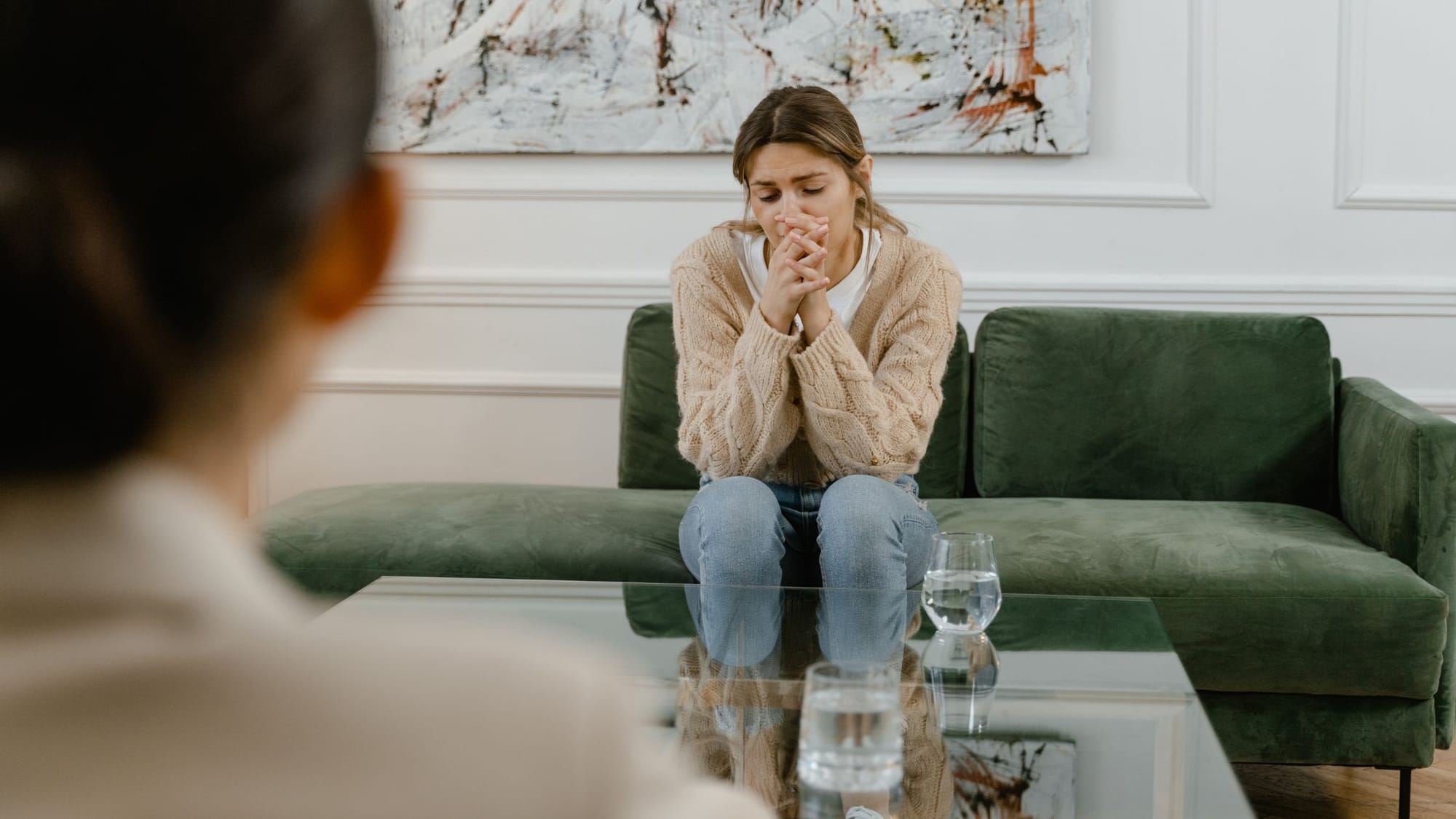7 Reasons Why Therapy Is Not The Solution Anymore

Today, therapy has become widely accepted as a go-to solution for mental health issues. Parents are quick to send their children to therapy at the first sign of a problem, and many adults turn to therapists for help with anxiety and depression.
However, while therapy is an important tool for mental health, its effectiveness, particularly for mild depression and anxiety, is increasingly being questioned. Conventional therapy may not always be the best approach, and over-reliance on it can have unintended negative consequences.
This article explores why therapy might not be the ideal solution and presents arguments against its widespread use for addressing mild mental health issues.
Table of Contents
1. Overemphasis on Therapy Can Reinforce Anxiety
2. Cultural Shifts Have Reduced Resilience
3. Studies Show Therapy Can Sometimes Worsen Symptoms
4. The Business of Therapy Prioritizes Profit Over Care
5. Indefinite Therapy Can Foster Dependence
6. The Risks of Rumination
7. Historical Resilience Stories Show Another Way
What Can You Do Instead Of Sending Your Kid To Therapy?
Effective Natural Strategies To Replace Therapy For Adults
Final Words
1. Overemphasis on Therapy Can Reinforce Anxiety

Parents today face a challenging dilemma. They want to support their children's mental health, but there's a risk of reinforcing anxieties by constantly validating them without offering practical tools for resilience. This can lead children to become overly dependent on external validation and support, rather than developing their own coping mechanisms.
2. Cultural Shifts Have Reduced Resilience
The disappearance of phrases like “suck it up” and “shake it off” reflects a cultural shift towards a more sensitive approach to mental health. While this has positive aspects, it also has unintended consequences. Without encouragement to push through minor adversities, young people may not learn the value of perseverance and resilience, leading to a heightened sense of vulnerability.
3. Studies Show Therapy Can Sometimes Worsen Symptoms
The Wise Teens Program in Australia aimed to teach emotional regulation and coping techniques to teenagers but found that these interventions often made teens feel sadder and more anxious. Regularly ruminating on negative feelings, even with the intention of managing them, can exacerbate these emotions rather than alleviate them.
4. The Business of Therapy Prioritizes Profit Over Care

Therapists operate within a business model that can influence their practices. There's a financial motivation to treat less severe cases over more challenging ones. Treating patients with milder issues is often more straightforward and less time-consuming, ensuring a steady and reliable income stream but potentially neglecting those who need more intensive care.
5. Indefinite Therapy Can Foster Dependence
Some therapists advocate for setting a fixed number of sessions and focusing on specific issues, contrasting with the more common practice of indefinite therapy. Indefinite therapy can lead to a dependence on sessions for emotional processing, without learning how to cope with or manage feelings independently, stifling personal development and resilience.
6. The Risks of Rumination
Rumination, the process of continuously thinking about the same negative thoughts, is a well-documented symptom of depression. Constantly dwelling on problems can create a feedback loop, where the more one ruminates, the worse one feels. Effective therapy should aim to break this cycle by helping individuals shift their focus and engage in activities that promote positive thinking and problem-solving.
7. Historical Resilience Stories Show Another Way
Previous generations faced significant adversities yet demonstrated remarkable resilience and perseverance. Modern society tends to shelter young people from difficulties, preventing them from developing coping skills and mental toughness. Reconnecting with these narratives and encouraging a more balanced approach to challenges can foster a mentally healthy generation.
What Can You Do Instead Of Sending Your Kid To Therapy?
If you are a parent struggling with your child's mental health, here are some simple yet effective tips to improve your kids' mental and overall well-being:
Bonding Time: Spend quality time with your children in nature. Activities like hiking, camping, and picnicking can strengthen your bond and provide a calming environment.
Physical Exercise: Encourage regular physical activity. This can be anything from family walks to playing sports together.
Reduction of Screen Time: Limiting screen time is crucial. Excessive use of screens can negatively impact mental health.
Excessive screen time has been linked to a range of negative outcomes, including increased anxiety, depression, and sleep problems. Reducing screen time can significantly improve mental health and well-being.
Crafting and Hobbies: Engage in hands-on activities like crafting, painting, or building projects together. These activities can be therapeutic and foster creativity.
Outdoor Activities: Spend more time outdoors. Activities like gardening, nature walks, and stargazing can be both relaxing and educational.
Effective Natural Strategies To Replace Therapy For Adults

Reduction of Screen Time:
- Excessive screen use is linked to increased anxiety, depression, and sleep disturbances.
- Limiting screen time can significantly improve mental clarity and overall well-being.
Digital Detox:
- Take regular breaks from electronic devices.
- Digital detoxes help reduce stress and enhance mental clarity.
Conscious Breaks from Daily Life:
- Plan retreats or mini-vacations for reflection and rejuvenation.
- Stepping away from daily routines can provide a fresh perspective and reduce stress.
Stress Reduction Techniques:
- Practice mindfulness meditation, yoga, and deep-breathing exercises.
- These activities can improve emotional regulation and reduce overall stress.
Spending Time in Nature:
- Engage in activities like hiking, camping, or walking in the park.
- Nature has a profound impact on mental health and promotes relaxation.
Cost-Effective Alternatives:
- These natural strategies are more sustainable and beneficial in the long run.
- They offer a cost-effective solution compared to therapy sessions that can cost up to $450 each, avoiding the financial and emotional burden of ongoing therapy.
Read Also:

Final Words
In summary, while therapy is important for mental health, over-reliance on it can have negative effects. Focusing too much on problems can worsen them, and therapy's business model may sometimes prioritize less severe cases. Historical stories of resilience show the importance of overcoming challenges.
Balancing professional help with building personal resilience is crucial. Encouraging constructive engagement with emotions and developing coping skills can foster a stronger, more self-reliant mindset.
Reflect on your therapy experiences and consider alternative approaches for a more holistic path to mental well-being.


